The Pandora’s Box of ERP
Epicor processes can be a Pandora’s box of complexity. Rumbling under the surface, these processes perform innumerable tasks that allow an ERP system to function effectively. But when these processes fail to deliver the expected functionality, understanding the logic of these subaltern beasts can be problematic.

- Was it a problem with network connectivity?
- With master file setup?
- With company configuration?
- Was it a bug?
Accessing Log Files Through Epicor Server File Download
One can spend an immense amount of time trying to troubleshoot these processes, especially given the timing required to perform trial-and-error with back-end processes. Such repetition gives ERP wheel-spinning a new meaning.
Fortunately, Epicor has a means of slowing the wheel, if not breaking it altogether. It is a general best practice when designing and developing complex programs and processes to include some form of logging. This provides the end user, or Epicor admin in this case, an opportunity to divine the logic of the program in question. This can help you troubleshoot process issues quickly.
In the past, gaining access to these logs to anyone but an Epicor administrator has been problematic. But in recent versions, Epicor added functionality to allow an end user to access server-side log files: Server File Download.
Epicor Server File Download provides the ability for a given user to look up various types of log files and save them to a local location. This allows you to retrieve and review log files. It does not require access to the server locations where they are stored.
Let’s assume that I kicked off a PO Suggestions process and enabled logging, specifying both the logging level and the log file name:
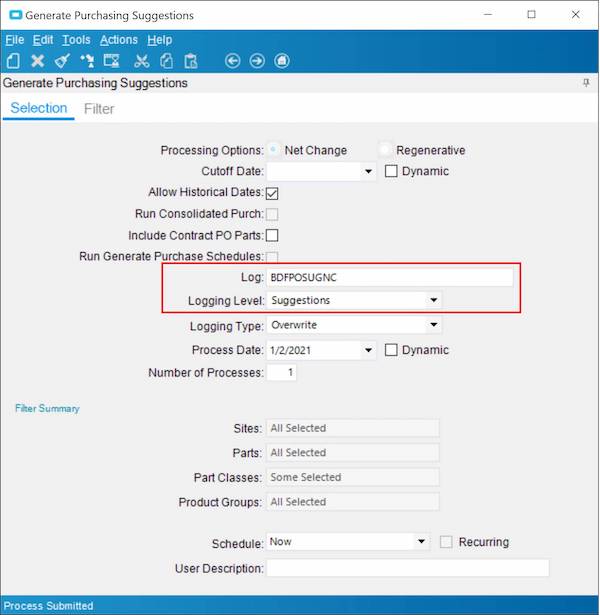
As the process runs, it writes a log file to the server. The log file can be retrieved using the following method:
- Open the “Server File Download” screen, which has the following menu location: System Management/Schedule Processes/Server File Download.
- Choose the Directory Type. User: These logs normally refer to the user-specific logs. Company: Company type files are the most common logging methods and logs for processes such as MRP or PO Suggestions normally land here. Reports: This area holds XML files related to Crystal Reports.
- Use the “Select File…” button to identify the file you wish to retrieve.
- Use the “Client Path…” button to define the location to which you want the file saved.
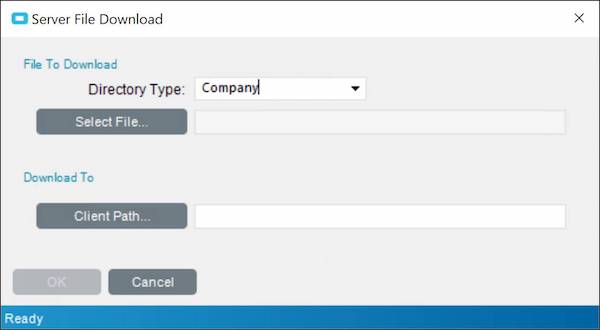
Clicking the “Select File…” button allows you to search for and select the file in question. In the example below, I located the file that I had named previously, when I kicked off PO Suggestions:
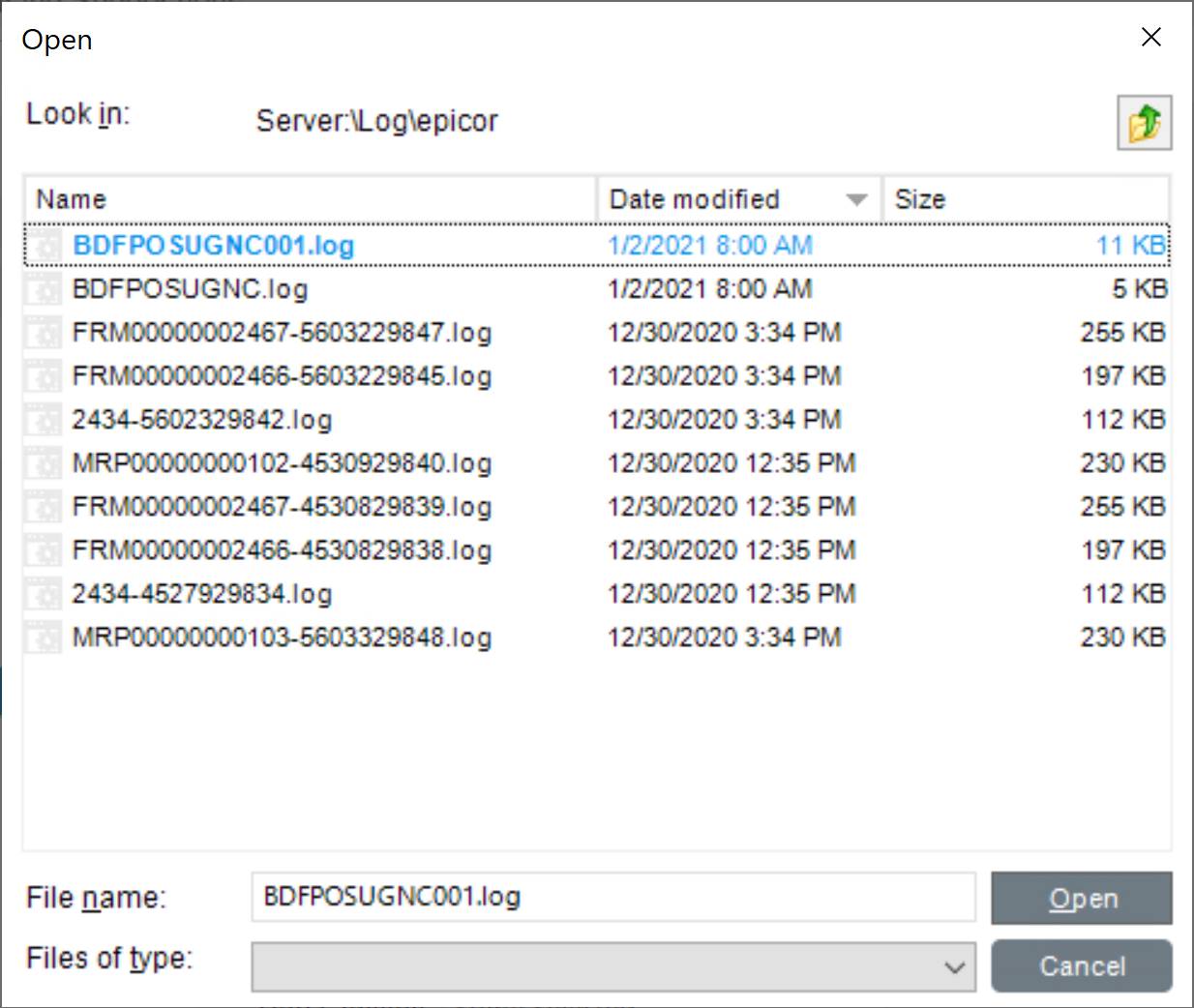
Clicking the “Client Path…” button allows you to specify the location to which you intend to download the file:
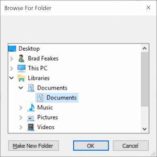
Once the source file and the destination location have been defined, select the OK button. This will kick off the download activity:
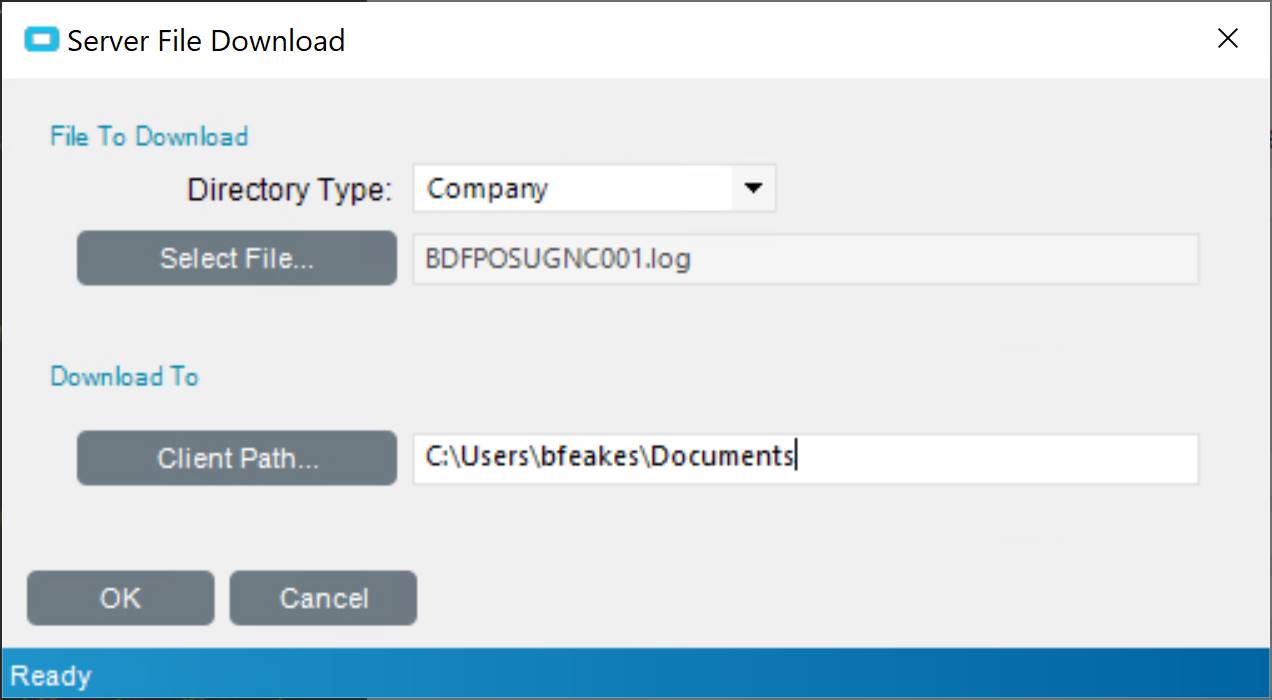
Once the download has completed, the system will raise a download status message:

Once downloaded, you can navigate to the specified path and access and review the log file to better understand the details of the process itself:
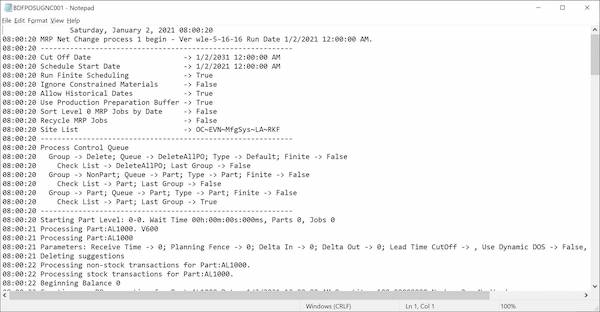
ERP system troubles? Check the log…
Navigating the workings of an ERP system’s back-end server processes can feel at first like an exploration into the Eleusinian Mysteries. Fortunately, Epicor’s Server File Download toolset allows you to unearth the hermetic actions of Epicor’s darker processes, hiding in the process server’s chthonic cave, bringing them into the platonic light of your client folder and making them visible for all to see.

